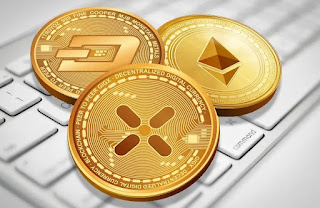Which homegrown MENA crypto exchanges will do proof of reserve and who was exposed to FTX
It all started
with the FTX downfall and then Binance’s Co-Founder and CEO call for crypto
exchanges to carry out proof of reserves. Since then crypto exchanges such as Binance
and crypto.com have provided wallets addresses tied to company wallets while
Nansen blockchain analytics firm is creating a display of crypto exchange proof
of reserves dashboard that currently includes Binance, crypto.com, OkX, Kucoin,
Deribit, Bitfinex, Github, and others.
But what are
locally homegrown crypto exchanges in MENA doing. Will they carry out proof of reserves,
do they see it as the solution to bring trust back to crypto exchanges, and who
has exposure to FTX?
MENA Crypto
Exchanges and Proof of Reserves
Bahrain based CoinMENA
Talal Tabbaa and Dina Sama’an when asked by LaraontheBlock about if they will
be doing proof of reserves stated, “This FTX news is a major setback for our
industry and highlights the importance of regulation. This is why CoinMENA was
established under the Central Bank of Bahrain, with a robust regulatory
framework and compliance requirements. We go through regular audits and have to
submit periodic reports to the regulators. More importantly, we keep our user
funds in segregated accounts and we don't offer leverage or margin which
severely increases the risk profile of an exchange. We see crypto as a
long-term investment and will continue to manage our risk prudently to build a
sustainable and profitable business."
Tabbaa adds, “CoinMENA
is also reaching out to Nansen who is heading this effort globally to see the
best way for it to be done.”
UAE regulated BitOasis
CEO Ola Doudin states, “We believe that locally regulated platforms that follow
industry best practices with proper oversight and supervision by their local
regulators is the best way to ensure consumer protection and proper risk
management practices.”
Vasja Zupan,
President of UAE based Matrix Exchange in a reply to the question of whether
they will do proof of reserves states, “We simply hold 1:1 client assets in our
custody that is literally reconciled daily and regularly reported and checked
by regulator and external auditors.”
Basil Askari Co-Founder
of UAE MidChains has a similar reply, “In terms of proof of reserves we are
already doing this on a daily basis with our regulator by providing daily
client account reconciliations.”
Ola Doudin in
her reply to this question stated, “BitOasis holds client assets in segregated
client money accounts and custody environments. We’re an audited company that
maintains the highest level of security and industry practices in storing and
maintaining client assets one to one backed. We do not engage in any fractional
reserve practices, proprietary trading, lending, and borrowing and we do not
have an exchange token.”
Christopher
Flinos, Chief Executive Officer of Hayvn crypto exchange in UAE “We already do
proof of reserves. Our client’s crypto stays in segregated client wallets and
our clients have always had access to their reserves. The firm in addition
keeps shareholder funds in USD We hold no treasury in any coins not even
stablecoins.”
Will Proof of
reserves bring trust back to crypto exchanges?
Zupan believes
that proof of reserves is totally useless without “proof of liabilities”. As he
explains, “Proof of reserves alone should not bring trust back without 3rd
party reviews and regulatory oversight over centralized services. I believe
that CeFi needs a strong regulatory overview in combination with strong
transparency and DeFi needs total transparency with independent reviews (not
everyone can evaluate complex software and framework).”
Basil Askari co-founder
of MidChains believes it is not enough to publish numbers. He explains, “Regulation
and strict supervision by regulators on how client funds are used, is and has
always been critical, as in TradeFi.”
Talal Tabbaa
believes that the way crypto exchanges are carrying out proof of reserves at
the moment is missing an important element. He explains, “In accounting when
you provide information on your assets, you also provide information on your
liabilities. Crypto exchanges need to do both proof of reserves and proof of
liabilities preferably on a blockchain in real-time.”
Flinos agrees
that with the current behavior of crypto exchange leadership trust is
continuing to be damaged and what is need is strong regulation, control and
corporate governance.
Exposure to
FTX
In the past both
CoinMENA and BitOasis had in their investment rounds received investment from
FTX Ventures through Alameda Research. As such CoinMENA in a joint statement
from both Talal Tabbaa and Dina Sam’an, Co-Founders, to LaraontheBlock
clarified the following: "FTX’s
Investment arm Alameda Research invested $1 million in CoinMENA’s $9.5m seed
funding round in 2021. All the funds were received prior to the close of the
seed round. Their stake is less than 3% and has no voting rights. In light of
the recent news, we have offered to buy back their minority stake.”
BitOasis also
made a public blog post
where it stated the following: “BitOasis confirms that it has no commercial
relationship or exposure with Alameda Research (Alameda) or any other FTX
entity. Accordingly, recent events at FTX and Alameda do not have any bearing
on our business, or our ability to provide our customers with a safe and secure
trading experience. In 2021, Alameda participated in BitOasis’ Series B
financing round. As a result of its investment Alameda holds a 2.2%
shareholding in BitOasis through Alameda Ventures Limited. Alameda is not
represented (nor has it ever been) on BitOasis’ board of directors or on any
governance forum or committee in any capacity. The shareholding is small and
hence creates no exposure to our business.”
Matrix, Hayvn
and MidChains founders confirm that they have zero exposure to FTX. Zupan
stated, “We don’t have any exposure to FTX or any related party or similar
protocols.” Al Askari as well confirmed, “Both our client funds and corporate
assets are not exposed. We keep our (and our clients) funds in a safe boring
1:1 holding.” Flinos confirmed that they do not deal with unregulated counterparts.
Two crypto
exchanges, RAIN in Bahrain and Veromex in UAE have not yet replied to the queries
posed, if and when they do reply, their responses will be added.
Take Away
While up until
now international exchanges have always looked more attractive because of their
liquidity and the amount of crypto they list as well as their geographic
coverage, it seems that those regulated in the region whether in UAE or Bahrain are looking more attractive because of their adherence to strong
regulatory bodies.
A lot of news is coming out that international exchanges undertaking so
called proof of reserves are not being transparent. For example Crypto.com’s cold
storage revealed a suspicious transfer of 320,000 Ether worth $404 million, to
Gate.io. Kris Marszalek, CEO of
Crypto.com assured traders that the transfer was accidental; funds were to be
moved to a new cold storage address. Experts allege that the transfer helped
Gate.io show its proof of reserves of user funds shortly after the transfer.
Even more so it seems that 20 percent of crypto.com reserves are in Meme Token
SHBB.
This also
happened with Huobi. It was noted that after Huobi released the asset snapshot
of the asset reserve, 10,000 ETH was transferred from Huobi to Binance and OkX
deposit wallets. (Etherscan.io)
Binance CEO CZ
also made an interesting tweet today November 13th 2022 where he says
Binance is not just a CEX (Centralized Exchange). This comes as the crypto mood
globally moves towards DEX (Decentralized Exchanges). In his tweet
he gives advice on how to store crypto in your own wallet, and refers to
trustwallet while saying that Binance is not just a CEX but provides other options.
In the end, the future is in
decentralized exchanges, smart contracts, and blockchain databases for proof of
reserves such as Etherscan.io and others. Crypto was never the culprit, it was
molding crypto into a traditional financial sector that was.


Comments
Post a Comment